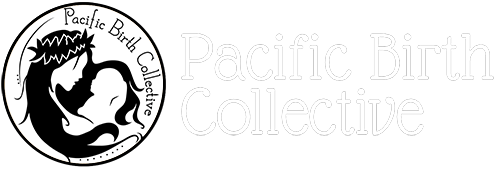New to Hawai'i? Looking for the lay of the landscape?
What better place to start than with the people and culture of this land?
Brief History of Hawaiʻi
People are 'called' to Hawaiʻi for many reasons: Personal, spiritual, healing, work, and family. Whatever your calling, please be respectful of these islands and the host culture, and actively seek mindful ways to engage, learn, and participate.
It is essential that both long-time Hawaiʻi residents that are not of Kanaka Maoli descent and malihini - visitors and newcomers to these islands - are aware of this dynamic. Sometimes, newcomers to Hawaiʻi live in a bubble of bliss while ignoring these facts. Newcomers can cause harm through displacement and lack of respect for local traditions, places and practices. But newcomers can choose to engage, learn, understand, be humble, and honor the indigenous people, while also enjoying the beauty of this place.
Prior to foreign interference, the Hawaiian nation was one of the most literate and educated in the world, with an internationally-recognized constitutional monarchy. An armed invasion carried out by white wealthy plantation owners in 1893 lead to the illegal overthrow of the Kingdom of Hawai'i. English was imposed on public life through schools and government, and much Hawaiian culture was forced underground. To this day, the indigenous people of Hawaiʻi are under-served and under-represented in positions of political and economic power because of colonization, and the effects of large-scale agriculture. This has caused political, cultural, social, and economic disenfranchisement.
The indigenous culture and people of Hawai‘i are Kanaka Maoli, also referred to as Native Hawaiian. Hawaiʻi is an occupied nation which culminated ultimately in the status of “Statehood” outside of the acknowledged legal channels defined by the US constitution and international law. All of this was done against the will of Hawaiian nationals. The Western societal construct that was imposed on this culture was and is not the way of these lands, and as a result, Native Hawaiians are inherently disadvantaged trying to survive in a system that was forced upon them.
If this is new to you, please watch the film Act of War by Dr. Keanu Sai.
This is a very brief overview, and the history of colonialism in Hawaiʻi deserves much more understanding. To aid in this, we have added a few resources at the bottom of this page. These are just the first few stepping stones to further your understanding.
The westernization of cultural practices is not unique to Hawaiʻi, but we certainly see the effects here. Many of the traditional birthing practices have been replaced, indoctrinated, or wiped out by Western models of health care, education, and standards.
Despite these challenges, we still have a growing number of Native Hawaiian birth keepers, koʻokua (doulas), advocates, kumu (educators), and pale keiki (midwives) who are nurturing, revitalizing, and bringing back the traditions around pregnancy, birth, and postpartum. They are planting the seeds of change for this generation and for all future generations.
Cultural Appropriation
Cultural appropriation is defined as "the adoption or co-opting, usually without acknowledgment, of cultural identity markers associated with or originating in minority communities by people or communities with a relatively privileged status."
Cultural appropriation and misappropriation run rampant in Hawaiʻi, specifically with large corporate marketing and tourism campaigns selling the culture of Hawaiʻi to visitors. However, large corporations are not the only ones engaging in cultural appropriation. Individuals and small businesses who are not of Native Hawaiian ancestry sometimes use words, customs, phrases, and practices of Native Hawaiians in their work and business.
This can be problematic when viewed in context. After the overthrow, the use of the Hawaiian language was banned in public schools and was quickly replaced by English in public spaces. Many significant cultural practices, such as hula, were lost or went underground. Outside influences created shame around being Hawaiian, and language and customs were diminished, causing immense damage.
Since then, there have been waves of Hawaiian cultural renaissance starting in the 1960s and 70s. To this day, the people of Hawaiʻi are revitalizing their culture. Once at the brink of extinction, the language is taught widely in immersion schools around the islands. However, generational trauma still exists, and the traumas of the past are not viewed as distant historical events but run as an undercurrent to modern culture, politics, and society.
Using Hawaiian words and practices inappropriately or without the proper education and permission can be inauthentic and exploitative. Please be mindful of using Native Hawaiian words, phrases, and traditions in your business practices and giving credit to lineage and teachers.
Resources to Advance your Understanding
To further your understanding and help Native Hawaiian birth work, please look some of these resources. This is just a stepping stone, so please donʻt stop here! There are many resources, books, and workshops relating to white privilege, cultural appropriation, and supporting BIPOC communities.
Act of War - The Overthrow of the Hawaiian Nation - documentary from 1993
Birth Rights by Flux Hawaii
Healing Across Generations by Maui Nō Ka Oi Magazine
Hawaiian Customs and Beliefs Relating to Birth and Infancy by Anthropology Source
The Struggle For Hawaiian Sovereignty by Cultural Survival
